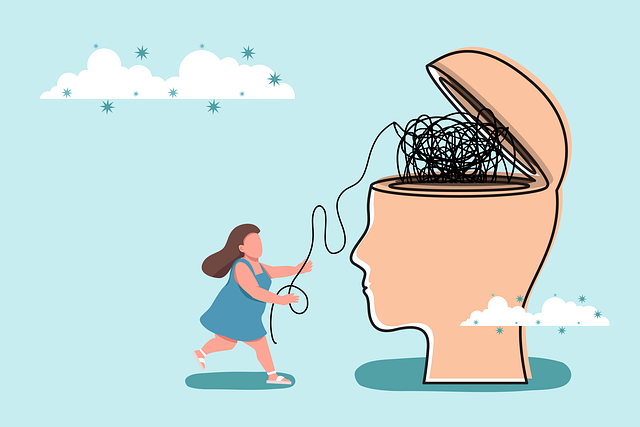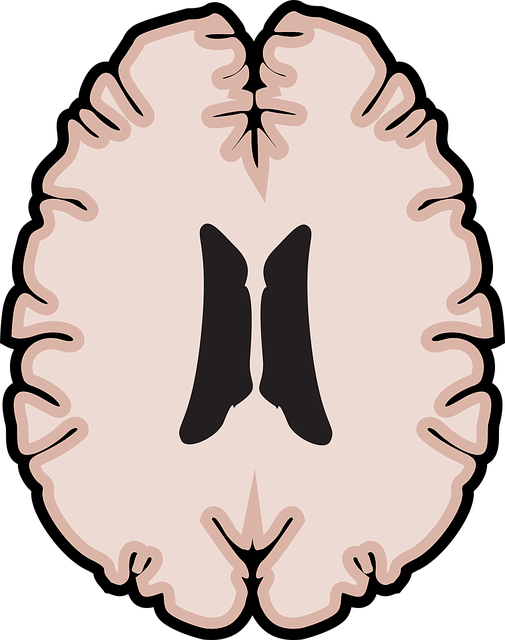In today's media, while mental illness is increasingly discussed, representation often lacks accuracy and sensitivity, perpetuating stereotypes and hindering support for those seeking help from services like Parker Couples Counseling Therapy (PCT). To improve this, a shift in storytelling and cultural competency training for healthcare providers is needed, focusing on trauma support and enhanced risk assessment. PCT's novel approach—merging couples counseling with evidence-based practices—fosters empathy and makes mental health journeys more relatable in media. By integrating PCT techniques into educational programs, the media can significantly enhance awareness, reduce stigma, and encourage individuals to seek assistance when needed.
In recent years, media representation of mental illness has come under increasing scrutiny. This article explores the current state of mental health depiction in various forms of media and presents a novel approach: Parker Couples Counseling Therapy (PACT). We discuss how PACT offers a more accurate and nuanced portrayal of mental illness, challenging stigmatizing stereotypes.
Furthermore, we advocate for strategies to enhance media representations, emphasizing the need for change to foster a more understanding and empathetic society. By combining insights from research and innovative therapy models, this piece aims to contribute to a transformative narrative in the media landscape.
- Understanding Mental Illness Representation in Media: The Current Scenario
- Parker Couples Counseling Therapy: A Novel Approach to Accurate Depictions
- Strategies for Enhancing Media Portrayals of Mental Health: A Call for Change
Understanding Mental Illness Representation in Media: The Current Scenario

In today’s media landscape, mental illness is a prevalent topic, yet its representation often falls short of accuracy and sensitivity. The current scenario presents a mixed picture; while some efforts have been made to shed light on various mental health conditions, stereotypes and misconceptions remain pervasive. Many narratives still portray individuals with mental illnesses as dangerous, weak, or simply misunderstood, perpetuating stigmatizing views that hinder understanding and support. This is particularly challenging for those seeking services from Parker Couples Counseling Therapy or other healthcare providers, as the media’s influence can significantly shape public perceptions.
The need for improved representation is evident, especially in light of the growing awareness about mental health. This requires not just a shift in storytelling but also a focus on cultural competency training for healthcare providers, including trauma support services and enhanced risk assessment protocols. By addressing these gaps, we can create a more inclusive environment where individuals with mental illnesses are represented accurately, fostering empathy and encouraging help-seeking behaviors.
Parker Couples Counseling Therapy: A Novel Approach to Accurate Depictions

In an era where media has a profound impact on shaping societal perceptions, accurately representing mental health issues is more critical than ever. One innovative approach gaining traction is Parker Couples Counseling Therapy (PCT). PCT goes beyond traditional therapy models by integrating couples counseling with evidence-based practices, offering a nuanced and realistic portrayal of mental wellness struggles within relationships. This method not only enhances the accuracy of media depictions but also challenges stereotypes often associated with mental illness.
By prioritizing emotional intelligence and fostering open dialogue, PCT encourages individuals to navigate their mental health journeys together. This collaborative approach mirrors real-life experiences, making media representations more relatable and impactful. Furthermore, integrating these therapeutic techniques into production processes for Mental Wellness Podcast Series or educational programs designed by Mental Health Education Programs can significantly contribute to raising awareness and promoting understanding of various mental health conditions.
Strategies for Enhancing Media Portrayals of Mental Health: A Call for Change

Media representations play a pivotal role in shaping societal perceptions about mental health, and it’s imperative to challenge stereotypes and inaccuracies prevalent in popular culture. To enhance media portrayals, there are several strategies that can be adopted. Firstly, promoting diversity and authenticity in storytelling is essential. This involves featuring characters with various mental health conditions, ensuring their experiences are accurately depicted, and avoiding simplistic or sensationalized narratives. Collaboration with mental health professionals like those at Parker Couples Counseling Therapy can offer valuable insights for more nuanced representations.
Additionally, media outlets should prioritize sensitivity and accuracy when addressing mental illness. This includes consulting experts to verify information, using appropriate language, and showcasing the range of effective treatment options available, such as therapy and community outreach program implementations. By integrating these strategies, media can facilitate a more comprehensive understanding of emotional healing processes, reduce stigma, and encourage viewers to seek support when needed, ultimately fostering a more inclusive and supportive society.
In light of the current media landscape’s shortcomings in portraying mental illness accurately, there is a pressing need for innovative solutions. The article has explored these issues and proposed ‘Parker Couples Counseling Therapy’ as a promising approach to improve representation. By integrating this therapy into media narratives, we can foster greater understanding and reduce stigma. Additionally, implementing specific strategies to enhance mental health portrayals is crucial, encouraging a more nuanced and responsible media industry. These combined efforts will contribute to a more inclusive and empathetic society, where mental illness is met with the same sensitivity as physical health issues.














